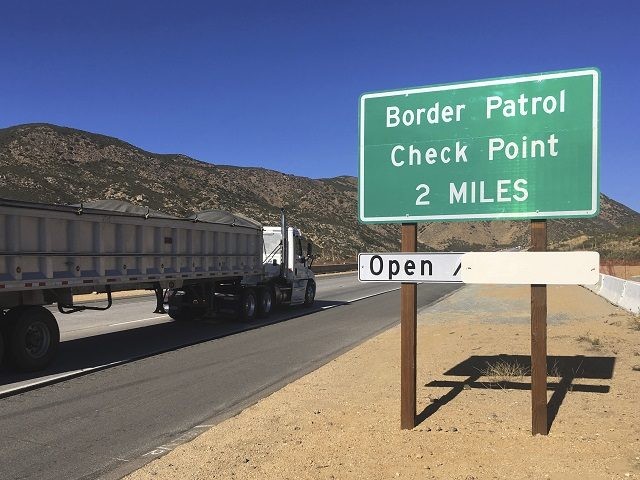
El Paso Sector Border Patrol officials re-opened all six of its inland security checkpoints following a decrease in illegal crossings and more Congressional funding. The checkpoints provide a substantial backstop to reduce human smuggling and the flow of drugs further into the continental U.S.
El Paso Sector officials announced the re-opened stops on Monday. Officials said the checkpoints will be operating at full capacity. The six locations were closed in March do to the massive increase in migrant family and unaccompanied children this year, officials stated. The staff normally assigned to the checkpoint moved to assist in transportation and care of the influx.
Department of Homeland Security officials reported earlier this year that up to 60 percent of Border Patrol agents ceased performing security duties as they began migrant care humanitarian roles.
“In March 2019, due to the sharp increase of illegal aliens entering in the El Paso Sector’s area of responsibility, all checkpoints heading out of the area were closed,” officials said in a written statement. “This allowed the various stations to provide support in the processing and care of the people who are in our custody.”
Indications are that the El Paso Sector is still experiencing “significantly higher traffic” but the increased funding and the movement of other agency personnel are allowing a significant number of agents to return to their primary posts.
Otero County, New Mexico, Sheriff David Black said in May that the shuttering of the inland checkpoints gave a “green light” to the Mexican cartels to move massive quantities of drugs through the area.
“I’ve had to redeploy my guys,” the sheriff told the New York Post. He said his deputies seized $60,000 in drugs in April. That represents a more than 1,600 percent increase over January when his deputies seized only $3,500 in illegal cargo. The sheriff said the inland checkpoints usually do the job of finding drugs that made their way illegally into the United States.
Last month, Las Cruces Police Chief Patrick Gallagher told reporters the closed checkpoints contributed, at least in part, to an increase in homicides and other crimes in his community, Breitbart Texas reported.
New Mexico is part of the El Paso Sector’s area of responsibility.
Last week, Yuma Sector officials told Breitbart Texas they were also able to re-open their closed checkpoints as the pressure of migrant family crossings subsided. A Yuma Sector Border Patrol official told Breitbart Texas they are now seeing an increase in the apprehension of previously deported criminal aliens and wanted child sex offenders as agents return to their primary posts.
Acting U.S. Customs and Border Protection Commissioner Mark Morgan credited the decrease in migrant border crossings in large part to the Trump Administration’s agreements with Mexico to increase immigration enforcement in that country. He cautioned senators that the current slowdown could be temporary and Congress must act to fix the loopholes in immigration and asylum laws that are being exploited by cartels and other human smugglers.
“Congress must acknowledge this is a crisis and pass meaningful legislation to address the current legal framework,” Morgan concluded in his prepared statement to the committee.

No comments:
Post a Comment